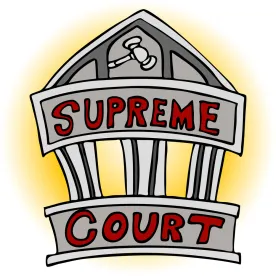Last week, the Supreme Court unanimously reversed a Ninth Circuit decision, resolving a circuit split in ruling that Federal Rule of Civil Procedure 23(f)’s 14-day deadline for a losing party to file a petition for permission to appeal an order granting or denying class certification is not subject to equitable tolling. Nutraceutical Corp. v. Lambert, 586 U.S. — (2019).
The putative class action lawsuit alleged California law false advertising claims arising from Nutraceutical’s sale and marketing of purported aphrodisiac supplements. The original district court judge assigned to the case certified the class and subsequently retired. Later, the judge to whom the case was reassigned granted Nutraceutical’s motion for decertification. From that point under 23(f), the plaintiff had 14 days to file a petition with the Court of Appeals for leave to appeal the decertification order.
Ten days into the 14-day countdown, plaintiff told the district court at a status conference that he would file a motion in the district court for reconsideration of the decertification order. No mention was made of the Rule 23(f) deadline. Plaintiff filed the reconsideration motion and, long after the 14-day deadline for a motion for leave to appeal, the district court denied reconsideration. Only then did plaintiff file his motion for leave to appeal with the Ninth Circuit.
Nutraceutical objected that the motion for leave to appeal was untimely under Rule 23(f), but the Ninth Circuit found the appeal timely, reversed the district court’s order of decertification and ordered that a class be certified. The Ninth Circuit’s rationale was that Rule 23(f)’s 14-day time limit is non-jurisdictional and therefore necessarily subject to equitable tolling, and that the 14-day deadline was deemed tolled when, before it had expired, plaintiff had objected to the decertification order and notified the district court of his intention to seek recertification via filing a reconsideration motion for reconsideration. In reaching this result, the Ninth Circuit recognized that its decision was in conflict with those of other circuits, which had held that Rule 23(f)’s 14-day deadline was immutable.
The Supreme Court granted Neutraceutical’s petition for certiorari and, in an opinion by Justice Sotomayor, unanimously reversed. The Supreme Court agreed with the Ninth Circuit that Rule 23(f) is non-jurisdictional because it is a procedural rule. Still, the Court clarified, the “mere fact that a time limit lacks jurisdictional force . . . does not render it malleable in every respect.” Instead, Justice Sotomayor explained, “[w]hether a rule precludes equitable tolling turns not on its jurisdictional character,” but “rather on whether the text of the rule leaves room for such flexibility.”
Reading Rule 23(f) with Federal Rules of Appellate Procedure 5(a)(2) and 26(b)(1), the Court found that the Rules “express a clear intent to compel rigorous enforcement of Rule 23(f)’s deadline, even where good cause for equitable tolling might otherwise exist.” Plaintiff’s motion was therefore untimely, regardless of any equitable considerations.
Nutraceutical Corp. provides an important lesson to litigants, whether plaintiffs or defendants, who find themselves on the losing end of a class action certification motion. Litigants have the right to seek leave to appeal the district court’s certification decision to the relevant circuit court. However, they forfeit that right if they fail to do so within 14 days of the entry of the order granting or denying class certification, as the appellate court cannot forgive on equitable tolling ground defendant’s failure to adhere to that deadline, even in good faith.





 />i
/>i

